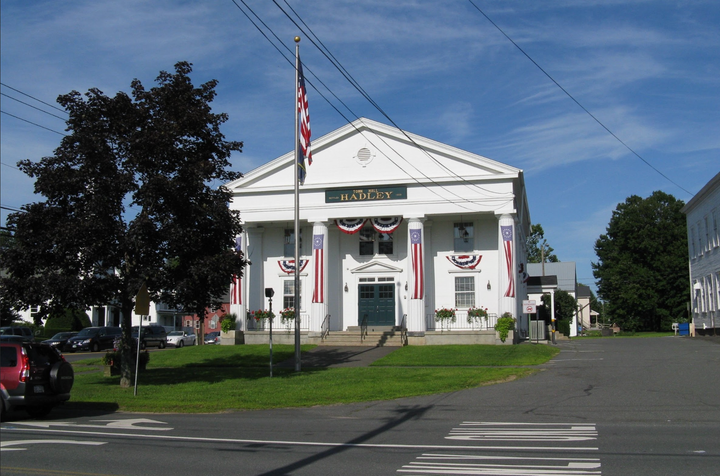OES Expands Green Office Program, Aims to Increase Sustainability
Over the past year, the Office of Environmental Sustainability (OES) has expanded its Green Office Program (GOP) in an effort to better facilitate sustainable practices around campus.
The GOP is a program that partners individual offices around the college with representatives from the OES to establish semesterly sustainability goals specific to the relevant office and to collaboratively create a plan of action on how to achieve those goals. The program was initially piloted in the 2017-2018 academic year, as the product of meetings with the sustainability departments from the University of Massachusetts Amherst and Smith, both of which had already started equivalent programs.
Many of the goals are given by a sustainability checklist produced by the OES, which checks for five categories of compliance: energy, printing, purchasing, waste and creative. The checklist and initial design of the program were conceived by former Sustainability Coordinator Suhasini Ghosh ’16.
According to Director of Sustainability Laura Draucker, the recent expansion comes largely in scope, with the OES “reaching out to virtually every department and office on campus to gauge interest in participating in the program and conducting an initial sustainability survey for several offices.” There are currently nine offices participating in the program, with “a number of others that have indicated plans to participate in the future,” Draucker said.
The program expansion came from the work of Sustainability Coordinator Eleah Wilkerson ’16 and former OES intern Allyah Pimentel-Landestoy ’21 over the summer of 2019, during which they conducted a research project around the program. Pimentel-Landestoy served as coordinator for the GOP in the fall semester; Bruce Tsogt ’21 currently occupies the position.
Draucker emphasized the importance of the GOP in the college’s broader climate strategy. “The amount of energy we use in our buildings has a direct impact on how successful we will be in meeting our climate action goals of carbon neutrality by 2030, and the GOP is a direct way to reach staff and faculty, let them know how different practices influence energy use and help them reduce energy and beyond,” she said. “Our larger hope for the GOP is that it will empower different offices and departments to think creatively about how we might address some of the more systemic sustainability challenges we face, and that collaboration among offices and even between some of our peer institutions may result from this work.”
Development Assistant Dianne McLane, who brought the GOP to the advancement office in June 2019, noted that the office has since “implemented a composting program, recycling K-cups, focused attention on sustainability and heightened awareness on the environment in general.”
“We were excited that the college took this initiative to include the different departments in the overall challenge to become better stewards of our areas,” McLane said.
Draucker indicated that the OES would continue to develop the program in the future. “We hope to continue expanding the program to address goals that are unique to individual offices and departments, or that go beyond the scope of the current checklist as the program continues to grow and develop,” she said.




Comments ()